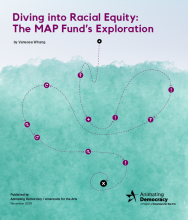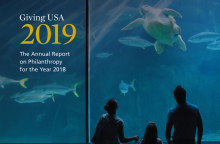
Mrs. Kelly Lamb Pollock
Balancing Mission and Revenue: The Quest for a Sustainable Model in the Arts
Posted by Jan 29, 2020

Mrs. Kelly Lamb Pollock
There is no “one size fits all” model when it comes to arts organizations. From performing arts, to museums, and arts education, our structures and operations vary widely; yet we often are melded into one pool of “arts organizations” when it comes to checking boxes for funding and other nonprofit classifications. As the Executive Director of COCA – Center of Creative Arts, a multifaceted, hybrid organization, I know first-hand how difficult and unhelpful it can be to benchmark our organization against others with different approaches and measures of success. One such benchmark is the ratio of earned to contributed revenue. Our operating budget is approximately 42% earned to 58% contributed revenue. Is our earned revenue too high? Too low? What should it be? The verdict is still out. Even when you encounter information on financial health of arts organizations, it tends to be more diagnostic than prescriptive. Despite the lack of definitive benchmarking data, I think most of us would agree that a diversified revenue portfolio is a positive step toward sustainability.
Read More























